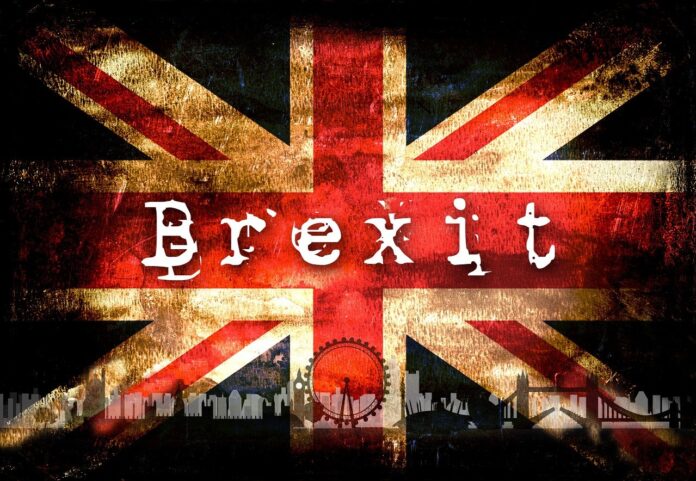The 2016 Brexit referendum stands as one of the most consequential-and arguably ill-judged-political decisions in modern British history. Its legacy is a deeply divided nation, economic uncertainty, and a constitutional debate that continues to reverberate through the UK’s political system. This article examines why the Brexit referendum was so problematic, exploring its flawed design, misleading campaigns, and the profound consequences that followed.
The Decision to Call the Referendum
The United Kingdom is a representative democracy, with Parliament holding ultimate sovereignty14. Traditionally, complex policy decisions-especially those with far-reaching constitutional implications-are debated and decided by elected representatives. By outsourcing the decision on EU membership to a public referendum, then-Prime Minister David Cameron gambled the country’s future on a single, binary vote14. Critics argue that such a complex issue, entwined with decades of legal, economic, and diplomatic ties, was ill-suited for a simple “leave or remain” question17.
Flawed Referendum Design and Question
The wording of the referendum question was itself a source of controversy. Initially, the Electoral Commission proposed a straightforward Yes/No question, but concerns about bias led to a revised format: “Should the United Kingdom remain a member of the European Union or leave the European Union?”7 While this aimed to be neutral, it introduced ambiguity about what “leave” actually entailed. The consequences of leaving-what would replace EU membership, what the new relationship would look like-were left undefined, leaving voters to interpret the implications for themselves7.
Manipulative and Misleading Campaigns
Both the Leave and Remain campaigns were criticized for spreading misleading information and implausible assumptions2. Vote Leave’s infamous claim that Brexit would free up £350 million a week for the NHS was described by a parliamentary committee as “deeply problematic” and “simply not true”2. Meanwhile, the Remain campaign’s warnings about household income losses were also found to be exaggerated and confusing2. This “arms race” of misinformation impoverished public debate and left voters poorly informed about the real stakes of the decision2.
“What we really need is an end to the arms race of ever more lurid claims and counter claims made by both sides on this. I think it’s confusing the public, it’s impoverishing political debate… the public are thoroughly fed up with it.”
Andrew Tyrie, Treasury Select Committee Chair2
Socioeconomic Divides and the Vote
The Brexit vote exposed and deepened longstanding social and economic divides within the UK. Areas characterized by poverty, low skills, and lack of opportunities were more likely to vote Leave, reflecting broader dissatisfaction with the status quo and a sense of being left behind by globalization and EU membership3. However, the referendum did little to address these underlying issues; instead, it became a lightning rod for grievances about immigration, economic change, and national identity8.
Economic Consequences
The economic fallout from Brexit has been considerable. Studies show that the referendum result immediately increased inflation, reduced investment, and stunted economic growth9. Long-term forecasts suggest a persistent reduction in GDP and per capita income, with estimates ranging from 1.2% to 4.5% losses depending on the scenario9. Key industries, particularly banking and business services, have faced challenges due to the loss of single market access69. The uncertainty surrounding new trade agreements and the future relationship with the EU continues to weigh on the UK economy69.
| Economic Impact | Short-term Effects | Long-term Effects |
|---|---|---|
| Inflation | +1.7 percentage points (2017)9 | Higher costs for households9 |
| Investment | -6% due to uncertainty9 | Persistent reduction in business investment9 |
| GDP | -2% to -2.5% (by 2018)9 | -1.2% to -4.5% over 15 years9 |
| Trade | Reduced exports to EU69 | Loss of single market access69 |
Political and Constitutional Turmoil
Brexit has also destabilized the UK’s political system. The narrow margin of victory (52% to 48%) left nearly half the country feeling disenfranchised8. The result reignited debates about Scottish independence and the future of Northern Ireland, both of which voted to remain in the EU6. The referendum’s aftermath saw years of political paralysis, leadership changes, and a crisis of confidence in the UK’s institutions.
Was a Referendum Appropriate?
Some constitutional scholars argue that, given the salience and controversy of EU membership, a national vote was justified5. However, the lack of clear rules about when referendums should be used, and the government’s discretion in calling them, raises concerns about elite manipulation and the undermining of representative democracy5. Unlike the carefully designed Scottish independence referendum, the Brexit vote was rushed and lacked the deliberative safeguards needed for such a momentous decision15.
Conclusion
The Brexit referendum was, in many respects, a failure of political judgment and process. It reduced a complex, multifaceted issue to a simplistic binary choice, fueled by misleading campaigns and deep social divides. The economic and political costs continue to mount, while the promised benefits remain elusive. In hindsight, Brexit stands as a cautionary tale about the perils of using referendums to settle issues that demand careful deliberation, expert input, and consensus-building-making it arguably the worst calling of a referendum in British history129.
By George Prince
Citations:
- https://blogs.lse.ac.uk/politicsandpolicy/what-was-wrong-with-the-brexit-referendum-and-what-would-be-wrong-with-a-second/
- https://www.bbc.com/news/uk-politics-eu-referendum-36397732
- https://www.jrf.org.uk/public-attitudes/brexit-vote-explained-poverty-low-skills-and-lack-of-opportunities
- https://journals.sagepub.com/doi/10.1177/09646639231153129
- https://www.centreonconstitutionalchange.ac.uk/opinions/was-brexit-referendum-democratic
- https://www.ebsco.com/research-starters/business-and-management/brexit-economical-impact
- https://theconversation.com/why-the-latest-eu-referendum-question-is-worse-than-the-original-47051
- https://en.wikipedia.org/wiki/2016_United_Kingdom_European_Union_membership_referendum
- https://en.wikipedia.org/wiki/Economic_effects_of_Brexit
Answer from Perplexity: pplx.ai/share












